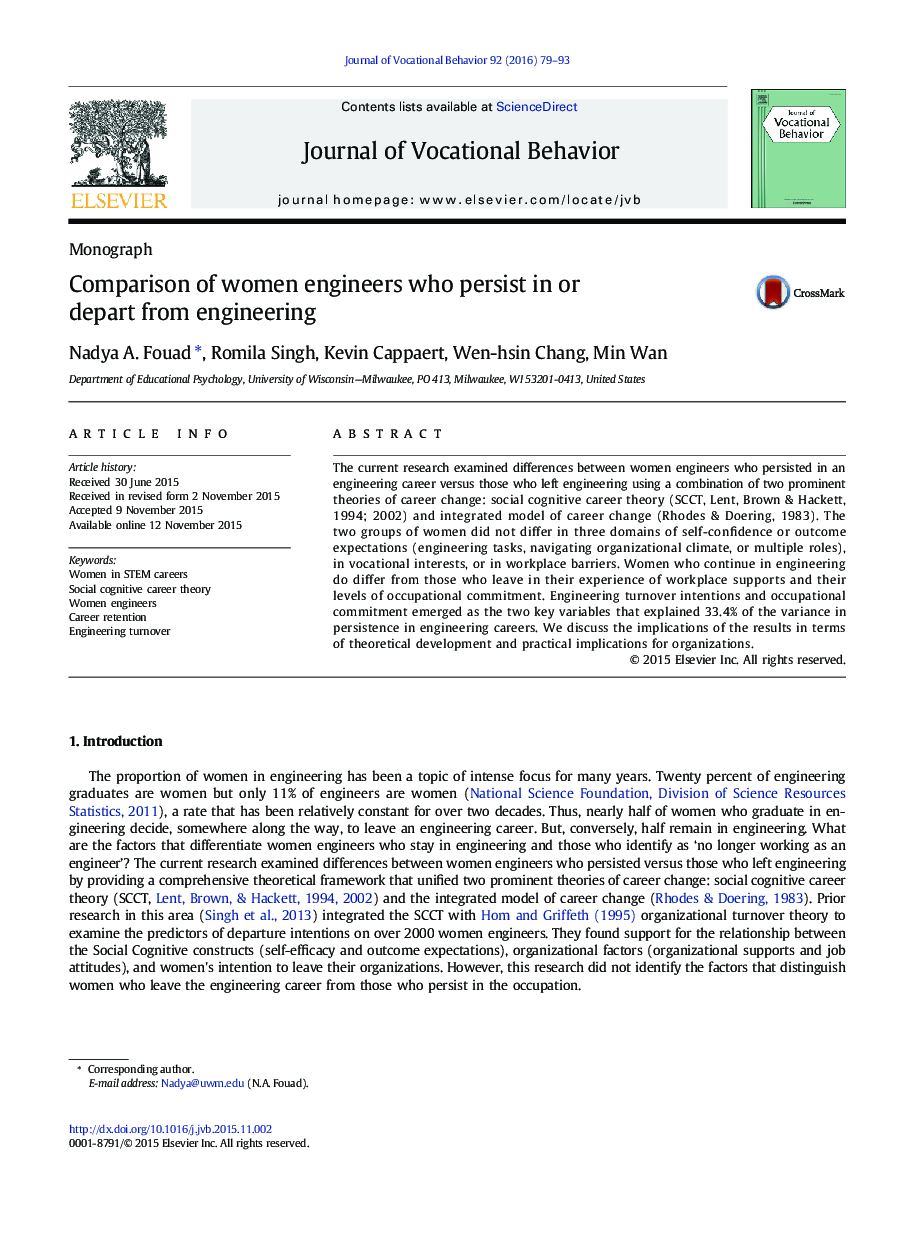| Article ID | Journal | Published Year | Pages | File Type |
|---|---|---|---|---|
| 7247672 | Journal of Vocational Behavior | 2016 | 15 Pages |
Abstract
The current research examined differences between women engineers who persisted in an engineering career versus those who left engineering using a combination of two prominent theories of career change: social cognitive career theory (SCCT, Lent, Brown & Hackett, 1994; 2002) and integrated model of career change (Rhodes & Doering, 1983). The two groups of women did not differ in three domains of self-confidence or outcome expectations (engineering tasks, navigating organizational climate, or multiple roles), in vocational interests, or in workplace barriers. Women who continue in engineering do differ from those who leave in their experience of workplace supports and their levels of occupational commitment. Engineering turnover intentions and occupational commitment emerged as the two key variables that explained 33.4% of the variance in persistence in engineering careers. We discuss the implications of the results in terms of theoretical development and practical implications for organizations.
Keywords
Related Topics
Social Sciences and Humanities
Business, Management and Accounting
Marketing
Authors
Nadya A. Fouad, Romila Singh, Kevin Cappaert, Wen-hsin Chang, Min Wan,
